- Home
- Terri Blackstock
If I Run Page 2
If I Run Read online
Page 2
“Yeah, it’s going to be a great weekend,” he says, then swallows hard. “I’m a little nervous.”
I get that. He’s probably changed since leaving for war. Stepping back into a relationship will be awkward and difficult. My friend Nora’s husband left on deployment four weeks after their first baby was born and was gone for a year. He did what little bonding he could do through Skype, but it wasn’t the same. You just can’t get back those months.
When he came home, Nora’s joy quickly changed to silent concern, and we all knew things weren’t going well. A person changes after a year as a mother . . . after a year as a warrior. Sometimes they change in opposite directions. I hope this soldier’s girl treats him like a hero and gives him the time and space he’ll need to adjust.
When he puts headphones on, I’m relieved that he doesn’t want to know about me. I shove my own earbuds in, close my eyes, and pretend to sleep, but as the bus begins to roll away from the depot, I open them to see my town going by. I may never see it again.
I close my eyes again when tears spring to them. I can do this, I tell myself. I’m strong. I’m focused. I’m determined.
I won’t let them win.
The tears abate. I wish I had actual music to drown out my thoughts, but my phone is broken in my pocket. Still, the earbuds keep me isolated.
I’m not sure if that’s good or bad.
3
CASEY
When we stop at a Greyhound station in Dallas, I decide to get off and spend the night there. The bus will go on to El Paso, but I won’t be on it.
There’s an Overnight Inn in sight of the bus station, so I walk there, afraid I’ll be mugged before I reach it. The night is alive with shadows and movement, but I walk briskly, my heart pounding. Halfway there, despair hits me like a sledgehammer across the temple. I can’t believe I’m here, hiding from the law. My parents raised me to respect authority and believe in the system . . . but that was before the system turned on us.
To my family, committing murder is as foreign as committing suicide.
We aren’t quitters, I told myself so many times after my father’s death thirteen years ago. He would never have hanged himself. I was so sure of that when I found him, his body staged to look like someone who wanted to end it all. Even at twelve, I knew what I saw. My sweet dad dead in a way that he would never have wanted me to find him.
Now I wonder if I could be a real first in my family. Could I be the one who really does give up?
Maybe if I’m mugged and murdered, that would be the best thing. But my survival instinct is too keen, so I walk as fast as I can until I get to the front door of the hotel. They do have vacancies, so I tell them that my wallet was stolen but that I have cash. I register under a fake name and soon have my room key.
When I get into the room, it smells of mildew and cigarettes. The bed is hard and the sheet doesn’t cover the mattress, but I tell myself I’m lucky to be here instead of jail.
Hopelessness sinks its claws deeper into me, and the thought of suicide returns. I think about how I might go about it, how I could cause the least trauma to whoever stumbles onto me. For a few minutes I rest in the thought that it could be over soon, in the relief it would be to not have to run for my life and hide like a criminal. I wouldn’t have to worry about how to earn a living or where to live or who is closing in on me. I wouldn’t have to deal with being branded a killer.
But I can’t rest in that fantasy long. I think of my mom standing at a funeral visitation, repeating her OCD rituals ninety to nothing as she shakes hands and comforts the comforters. After the funeral, she will lie awake all night with terrors running through her head, not able to sleep for weeks until a doctor intervenes and adjusts her dosage. My sister will be so distraught and distracted that it will disrupt her parenting of little Emma. Her marriage will suffer because the bitterness and anger will rise like lava in her heart, and eventually she’ll say something publicly that she shouldn’t, and they’ll come for her too.
They’ll talk about my suicide on TV like I’m the drama of the week. They’ll describe it in detail and there will be YouTube videos of my body. Nancy Grace will perform my psychological autopsy.
I finally bag the idea. Taking my own life would be too selfish. Too many dominoes would fall, too many people would be impacted, and not just for a day or a week or a month, but for years . . . for decades.
You can’t just check out and think it will all be over. It won’t be over for anyone who loves you. You’ll only leave them to run after the pieces that scatter in the angry wind. You’ll leave them desperately trying to solve the problems you wouldn’t . . . all while plugging their own wounds. Even if you’re like me, single without children, you could impact generations.
Is quick relief worth it?
No, it isn’t. I’d rather take the pain myself so they won’t have to.
There’s no sense of relief when I determine that I have to plow through, but at least there is some resolve that I’m plugging along for my family. Little Emma won’t have to talk about her suicidal aunt. Of course, years from now her playground friends will call me a killer. But her mother will set her straight. Maybe Emma will hear fond memories of me.
I finally fall asleep for a while, blessed relief that I didn’t ask for. I dream that Brent is still alive, that we’re hanging out at Malico’s Pizza Plaza, eating pepperoni and whining about the forgetful waiter, as if his leaving off the sausage is the worst thing that could happen.
When I wake, Brent’s gone again. I used to love Saturday mornings, but everything seems wrong in this moldy hotel room. I cry quietly as I shower and get ready to go to who knows where.
4
CASEY
If the police know I bought a ticket to El Paso, they might not be looking for me in Dallas. Still, I tie my bandana back on my head do-rag style and walk back to the bus station. I haven’t decided where to go next, but the next bus is to Tulsa, Oklahoma, so I buy the ticket. I’m blissfully seated alone for most of the trip, and I fear falling asleep lest I miss the intermediate stops and go all the way to Tulsa. I have to get off somewhere along the way.
Durant, Oklahoma, seems as good a place as any. It’s not an official stop, just a place where passengers have ten minutes to smoke or buy a Coke. I look around. We’re not in a particularly good area of town, but I see a drugstore on a corner four blocks up. I walk with purpose, trying not to look like I’m lost. Even in the daylight, I could be a prime target—a petite blonde girl walking alone in a bad neighborhood.
I guess a person on the lam should be brave and bold, but I feel like a wilting tulip, my petals pointing to dirt. Fear pulses like blood through my veins again, in my ears, pounding in my head.
That’s my brave girl, my dad used to say when I was ten in a new school, dealing with a bully who’d made my life miserable. I wasn’t brave then any more than I am now. I avoided the mean girl in the hallway and stuck close to the teacher when she was around. Because I was new, I played alone on the playground, lip-synching to silent songs and smiling as though I hadn’t noticed I was alone.
I smile now and move my mouth to that silent song, as if my mind is contented and preoccupied. No one seems to notice the falsehood in that expression or the tornado raging through my head.
No one really sees me at all.
I get to the drugstore and walk up the hair dye aisle. I stand in front of the L’Oreal products trying to decide what my new hair color will be. I’ve always liked being blonde, but any variation of that will look too much like me. No, I guess I’ll have to go brunette. I grab a dark brown off the shelves, hoping I don’t botch it.
I hear a crash and jump a foot. Someone at the front of the store curses. Catching my breath, I move along the center aisle until I can see up the row in front of the clerk. She’s on her knees amid a toppled mound of acid reflux medication on sale two for one.
Without thinking, I rush toward her. “You okay?” I ask. “Did you fall?”
<
br /> Her cheeks are flushed. “Yeah, I’m so clumsy. I knocked down the display.” I reach out my hand to pull her up, and she takes it and gets to her feet. “Thanks. I can check you out if you’re ready.”
I glance up and see a security camera over the door. I lower my head. “Yeah, I’m ready. I can wait, though, if you need to pick them up.”
“No, the display will wait.”
Normally I would help her pick up the boxes. Small kindnesses used to cost me nothing. Now they’re more expensive than I should be willing to pay. I follow her to the cash register, grabbing a candy bar and some nuts off the rack next to the counter, hoping to distract her a little from the hair color. “Hey, do you know of a safe motel around here? I’m just passing through town and I don’t have a reservation.”
She shoots the bar code of the hair color, the candy, the nuts, and drops them into a bag. “There’s one up the street,” she says, “but honestly, I wouldn’t stay there if I were you. I would go farther into town, to the Hampton Inn on Burngard Street. It’s a few miles from here, though.”
“Do you mind if I use your phone to call a cab? It’s not one of my better days. Car broke down and my phone battery’s dead.”
“Sure.” She slides the store’s phone across the counter. “Call information and ask for Dean’s Taxi Service. They’re the only ones in town.”
I call for the cab, thank her, and wait outside, second-guessing every word I said to her. If she’s questioned, she might remember me. But this is Durant, and they probably won’t be looking for me here, at least not until I’m long gone. Maybe she’ll never hear me called a murderer.
As I stand outside with my bag of hair dye, reality begins to drown me. What was I thinking? I should have called the police the second I found Brent, told them he was dead on the floor and who was surely to blame. But as quickly as that thought enters my mind, I know that it wouldn’t have worked. My first instincts were right.
I wish I could see my mother and tell her everything, that she could hold me and reassure me that this won’t smother me. I despise what this will do to her. She endured the lies and shocking grief before and emerged a different person—with shadows stretching dark through her soul and reflecting in her haunted eyes.
She still has my sister and my niece, who always bring a smile to those eyes. I can’t stand the thought of not talking to them.
And I miss Brent. My confidant, the one who cared about the things from my past that plague me. Oddly, I still feel the impulse to pick up the phone and call him. Have they found him yet? Have his parents been told?
Is everyone who loves him wailing in grief right now?
Do they blame me?
Maybe they should, because his death is my fault. Guilt surges through me, and I don’t know how to combat it. I just have to breathe and take the next step.
The Shreveport police aren’t omniscient, and even if they get the state police involved, their reach is limited. But I know it isn’t justice that will make them come for me. Justice has never had anything to do with it.
When the cab pulls up, the driver is a plump, gray-haired man with deep smile lines next to his eyes. I get into the backseat. “Thanks for coming,” I say. “This probably isn’t one of your usual pickup spots.”
“No, ma’am,” he says. “But I’ll go most anywhere. How’d you get here?”
“Walked from the gas station,” I say. “My car broke down, and it won’t be fixed until tomorrow. I’m hoping the Hampton Inn has vacancies.”
“Should,” he says. “No weddings in town this weekend. So were you passing through?”
“Yes. I was going to Tulsa on business.”
“Oh yeah? What do you do?”
I try to think of the least memorable job I can imagine. “I work for a company that designs cardboard boxes.” I don’t like how easily lying comes to me.
“Cardboard boxes?” the driver asks. “Never heard of that before.”
I smile. “Yeah, well. Somebody’s got to do it, right? You didn’t think all those boxes just created themselves, did you?” I pause, wondering if I’ve gone too far. “How long have you been driving a cab?”
As I’d hoped, he moves on. “Three years. Lost my job when the plant closed down, couldn’t get another one, so here I am.”
“Doing what it takes,” I say. “Good for you. You have a family?”
“Wife and daughter, and a sweet grandbaby. Daughter’s not married, and at first I thought it was the end of the world. But that baby has us wrapped around her finger. Fifteen months old, and she’s the joy of our lives.”
“I love babies.”
“Got any of your own?”
“No, but I hope someday. Got a picture?”
I’m not just trying to manipulate the conversation. I really love seeing people’s family pictures, especially when there are babies.
He flicks on his phone and thrusts it back over the seat. I smile at the chubby face and laughing eyes. “She’s adorable.”
“God made them cute so we wouldn’t send them back. There are long nights, but they’re all worth it.”
Soon we pull into the Hampton Inn parking lot. I hope I don’t strike out here. “Thank you for the ride,” I say. “Your granddaughter’s a lucky girl.”
I pay him, then get out of the car. The Hampton Inn does have vacancies, so I register under a fake name, claiming again to have lost my driver’s license. When I tell them I want to pay cash, the desk clerk has to call the manager and clear it with him. He comes to the front and looks me over, then grants his permission. His scrutiny makes me nervous. When they give me the key, I take refuge in my room. The first thing I do is turn on the television to the national news, wondering if they’ll have a story on the murder in Shreveport. It’s doubtful, since the nation really doesn’t care about one man murdered in a Louisiana town, no matter how amazing he was. While I listen to the news, I quickly color my hair. With my light base, I hope the color is dark enough. I wait the required fifteen minutes, then step into the shower and rinse it out.
As the color circles the drain, I think of all that blood. Brent . . .
I close my eyes and sink into the wet tub, shower water still running over me, and I let my grief have its way. I cover my mouth to muffle the rasping cries, and soon the spray grows cold. I turn it off and sit in the empty tub until I can breathe again.
When I’m finally able to move, I get out and dry my hair, surprised at the new person staring back at me in the mirror. I don’t really have the right coloring for dark hair, but it is what it is. My eyebrows are still light, so I ignore the warnings on the directions and use what’s left in the bottle to dab on my eyebrows, then lie flat on the bed, hoping it won’t drip into my eyes. Instead of letting it run into my eyes when I rinse, I wipe it off with a damp washcloth. When I’m dressed again and my hair is dry, I stare at my reflection and don’t recognize myself.
Yes, the eyes are still me . . . almond-shaped and a little too big for blending into crowds. Maybe they won’t be noticeable if I keep going without makeup for a change—forsaking my beloved eyeliner. My glasses should help. They’re kind of new and not too many people have seen them, so maybe they’re safe.
Around eleven o’clock, I go down and throw the hair dye bottles and box away in a trash can at the end of the hall. Then I find the business center and get on the hotel’s computer. I don’t dare look at any of my friends’ Facebook pages or e-mail them. Even checking the news in my hometown could give me away if police are watching for out-of-town logins. Maybe I’ll check tomorrow right before I leave. That way, if they do happen to figure out where I am, I’ll be on my way out. For now, I need Amtrak and Greyhound schedules. I have to figure out where to go next. I quickly find Amtrak, but there isn’t a Greyhound station here. The closest one is in Ardmore, but I print it out anyway, along with the train schedule. I go back to my room and check my cash.
I have $12,000. When my sister and I were cleaning out my dad’s thing
s two years after his death, we found a stash of $36,000, money he’d saved a hundred bucks at a time over his whole career. It was in a box marked “Rainy Day.” We gave it to our mom, and she insisted we divide it three ways. I’ve never touched it, never even put it in the bank. I kept it in a cigar box all these years, never sure what to spend it on. It almost seemed like blood money, since I wouldn’t have had it without his death. Now I know it was my dad’s provision for me, as if he’d known I would someday have to run from his enemies. It should be enough to get me hotel rooms and meals and possibly a new computer and phone. Maybe even an old used car when I get to where I’m going.
When I find a place to hide, I should get a job right away so I can stop drawing from it and replenish it.
Gratitude wells up in me that Dad had the foresight to leave us this. But he would have been horrified to know that I had to use it for this.
Halfway through the night, I’m still not able to sleep, so I sit up and think. I’ll need a driver’s license. You can’t do anything without one. I go back down to the business office and hear voices at the desk, a woman and a man giggling and flirting. They haven’t noticed me. I go into the small computer room and look up “fake driver’s license.”
Nothing helpful comes up on the screen. I guess people who break the law don’t openly advertise. I go back to bed and try not to worry about it.
Sleep finally comes, but I wake up early at seven o’clock, afraid that police are waiting in front of the hotel to catch me the minute I walk out the door. But that’s silly. They wouldn’t have waited. A SWAT team would have rammed down my door and bolted in with rifles aimed, ready to handcuff me and drag me away.
I go down to the business center and pull up a map on the computer and figure out how to get to the Amtrak station. I don’t want to take a cab. I need the time to walk and clear my head. Before I leave the room, I quickly check a friend’s Facebook page. He has been posting about me.

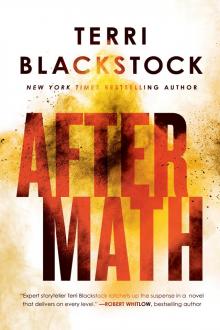 Aftermath
Aftermath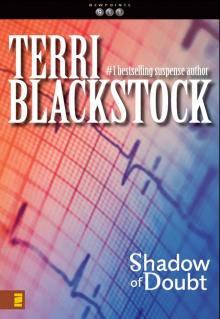 Shadow of Doubt
Shadow of Doubt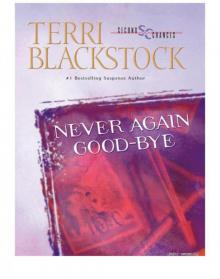 Second Chance - 05 - Never Again Good-Bye
Second Chance - 05 - Never Again Good-Bye Miracles
Miracles Broken Wings
Broken Wings the Cape Refuge (Cape Refuge Series Book 1)
the Cape Refuge (Cape Refuge Series Book 1) Shadow in Serenity
Shadow in Serenity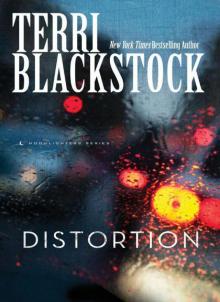 Distortion (Moonlighters Series)
Distortion (Moonlighters Series)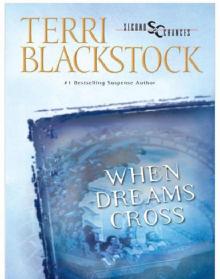 Second Chance - 02 - When Dreams Cross
Second Chance - 02 - When Dreams Cross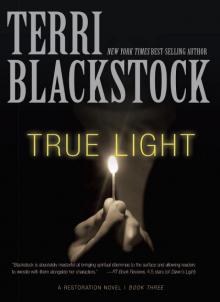 True Light
True Light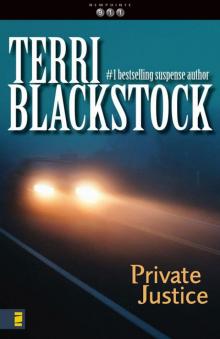 Private Justice
Private Justice Last Light
Last Light Downfall (An Intervention Novel)
Downfall (An Intervention Novel)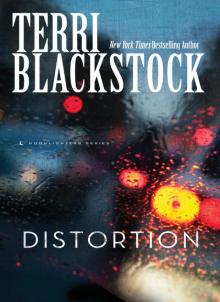 Distortion: Moonlighters Series: Book Two
Distortion: Moonlighters Series: Book Two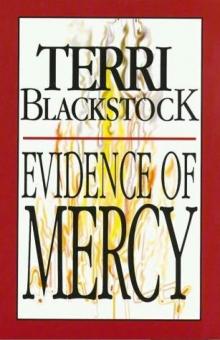 Evidence of Mercy
Evidence of Mercy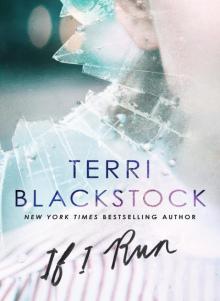 If I Run
If I Run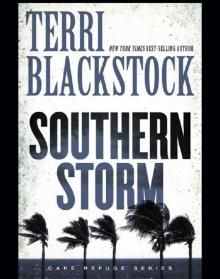 Southern Storm
Southern Storm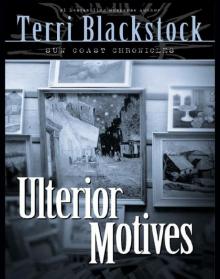 Ulterior Motives
Ulterior Motives Emerald Windows
Emerald Windows River's Edge
River's Edge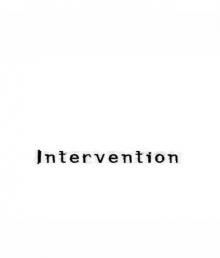 Intervention
Intervention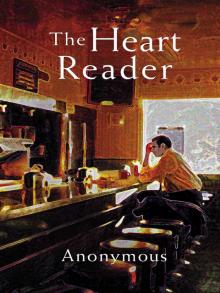 The Heart Reader
The Heart Reader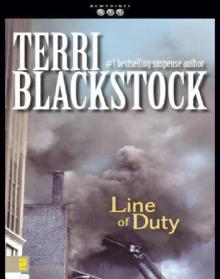 Line of Duty
Line of Duty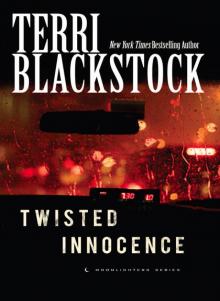 Twisted Innocence
Twisted Innocence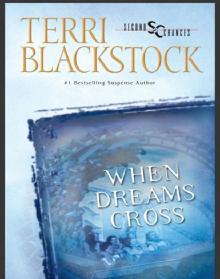 When Dreams Cross
When Dreams Cross Downfall
Downfall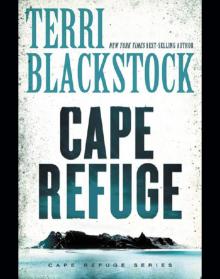 Cape Refuge
Cape Refuge Breaker's Reef
Breaker's Reef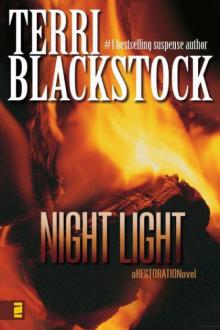 Night Light
Night Light Double Minds
Double Minds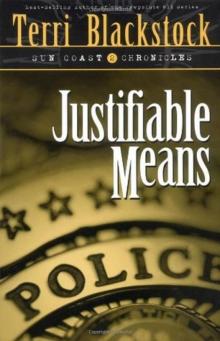 Justifiable Means
Justifiable Means Covenant Child
Covenant Child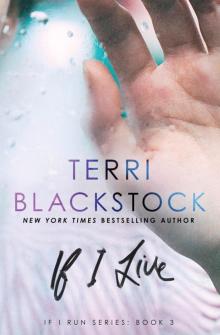 If I Live
If I Live If I'm Found
If I'm Found Vicious Cycle
Vicious Cycle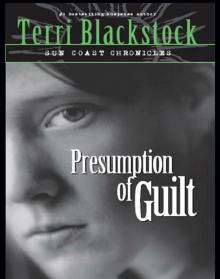 Presumption of Guilt
Presumption of Guilt Trial by Fire
Trial by Fire Word of Honor
Word of Honor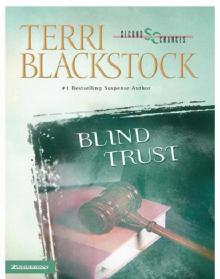 Second Chance - 03 - Blind Trust
Second Chance - 03 - Blind Trust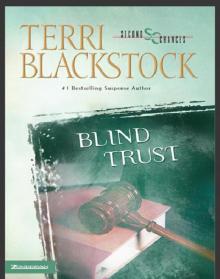 Blind Trust
Blind Trust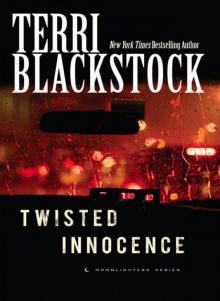 Twisted Innocence (Moonlighters Series Book 3)
Twisted Innocence (Moonlighters Series Book 3)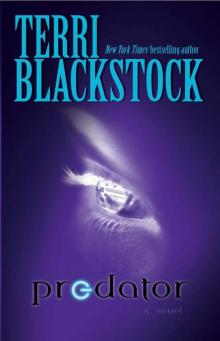 Predator
Predator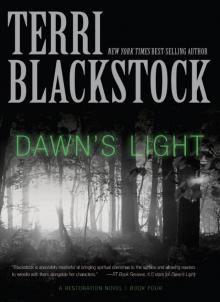 Dawn's Light
Dawn's Light Chance of Loving You
Chance of Loving You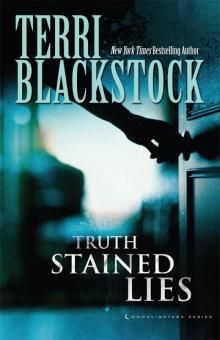 Truth-Stained Lies
Truth-Stained Lies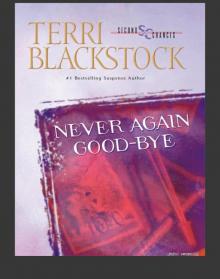 Never Again Good-Bye
Never Again Good-Bye Catching Christmas
Catching Christmas